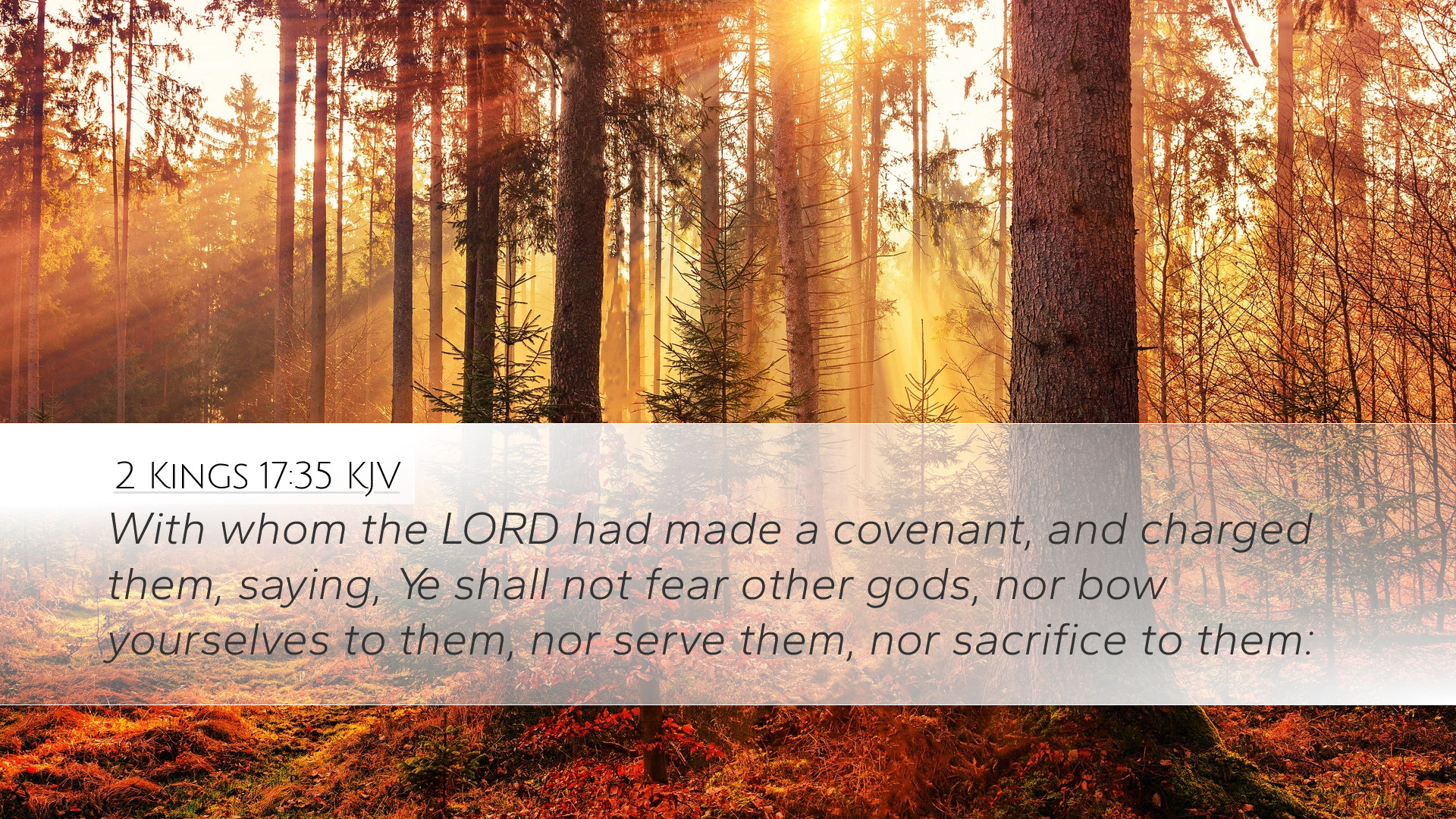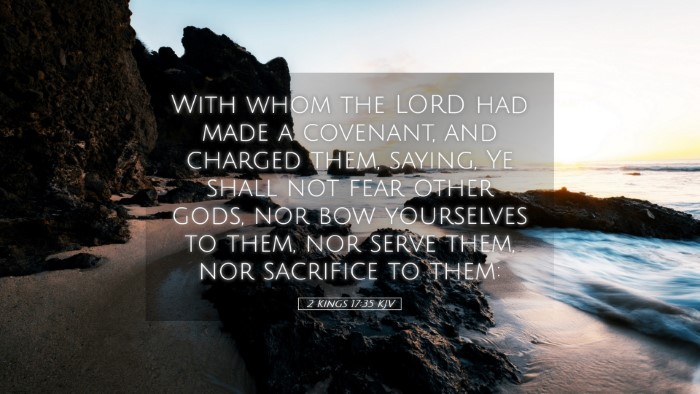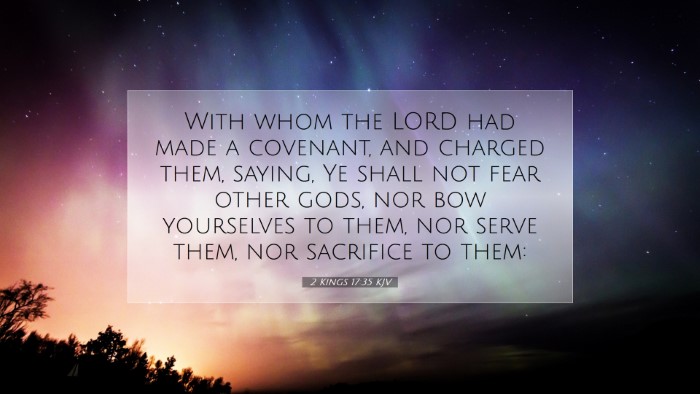Commentary on 2 Kings 17:35
2 Kings 17:35 states:
"With whom the Lord had made a covenant, and charged them, saying, Ye shall not fear other gods, nor bow yourselves to them, nor serve them, nor sacrifice to them:"
Contextual Background
This verse is situated in a larger narrative focusing on the consequences of Israel's disobedience to God. The backdrop of this text involves the Assyrian conquest of Israel and the subsequent exile of its people. In this era, the covenant between God and Israel was paramount; it outlined the expectations of the Israelites and the faithfulness of God.
Theological Implications
Covenant Relationship
According to Matthew Henry, the mention of the covenant reflects God's faithfulness and the gravity of the Israelites' neglect of their divine obligations. The covenant was not merely a contract but a binding relationship founded on loyalty and worship. The term "covenant" indicates that God actively engaged with Israel, requiring their commitment in return.
The Charge Against Idolatry
Albert Barnes emphasizes that the charge given by God—against fearing, bowing to, and sacrificing to other gods—highlights the exclusivity of Israel's relationship with Yahweh. This is consistent throughout the texts of the Old Testament, where idolatry is consistently viewed as the major transgression against God's holiness.
Consequences of Disobedience
Adam Clarke elaborates on the implications surrounding the warnings associated with failing to uphold this covenant. The repeated failures of Israel, as noted in the preceding chapters, demonstrate the gravity of sin and its repercussions—both for individual believers and the nation as a whole. This verse serves as a stark reminder that deviation from such divine directives leads to severe consequences, as portrayed through the exile of the Israelites.
Historical and Cultural Considerations
The historical context in which this verse was written reflects the turmoil of the Israelites' social and national identity. Matthew Henry notes that the surrounding nations did not uphold similar stringent ethical demands, asserting that Israel stood apart because of their covenant with Yahweh. Thus, Israel’s responsibility was fundamentally different, steeped deeper in spiritual heritage.
Additionally, Albert Barnes points out that idolatry during this period often incorporated cultural practices that were alluring to the Israelites. This intersection of culture and faith serves as a cautionary tale regarding the dangers of syncretism—blending sacred beliefs with secular ideologies—which remains a relevant concern today.
Modern Application
For contemporary believers and scholars, the implications of this verse remain significant. Adam Clarke encourages pastors and theologians to consider the nature of their own covenant with God today. How does the church operate in the light of such charges against idolatry? Are there modern equivalents where the church—intentionally or unintentionally—turns to other 'gods' of status, wealth, or power?
Call to Faithfulness
This passage is a clarion call to faithfulness, urging today’s followers to examine their allegiances closely. Just as Israel was warned against idolatry, so too must modern Christians remain vigilant against the allure of contemporary idols. The emphasis to “fear not” other gods can be interpreted as a divine assurance that God is sovereign above all things.
Encouragement in Covenant Relationship
This verse ultimately underscores a theme of hope and redemption. Matthew Henry assures believers that despite their failings, God stands ready to restore those who turn back to Him. Understanding the nature of God's covenant—where grace is continually offered—invites believers into a sustained relationship marked by faithfulness and commitment.
Conclusion
In summary, 2 Kings 17:35 not only recounts the historical covenantal obligations of Israel but also speaks to the timely relevance for Christians today. As pastors, students, and theologians delve into this passage, it serves as a reminder of the seriousness of divine commandments and the call to maintain fidelity in our relationship with God. Engaging with the insights of public domain commentaries enriches our understanding, urging a response of active faithfulness in the face of a world rife with distractions and competing allegiances.


